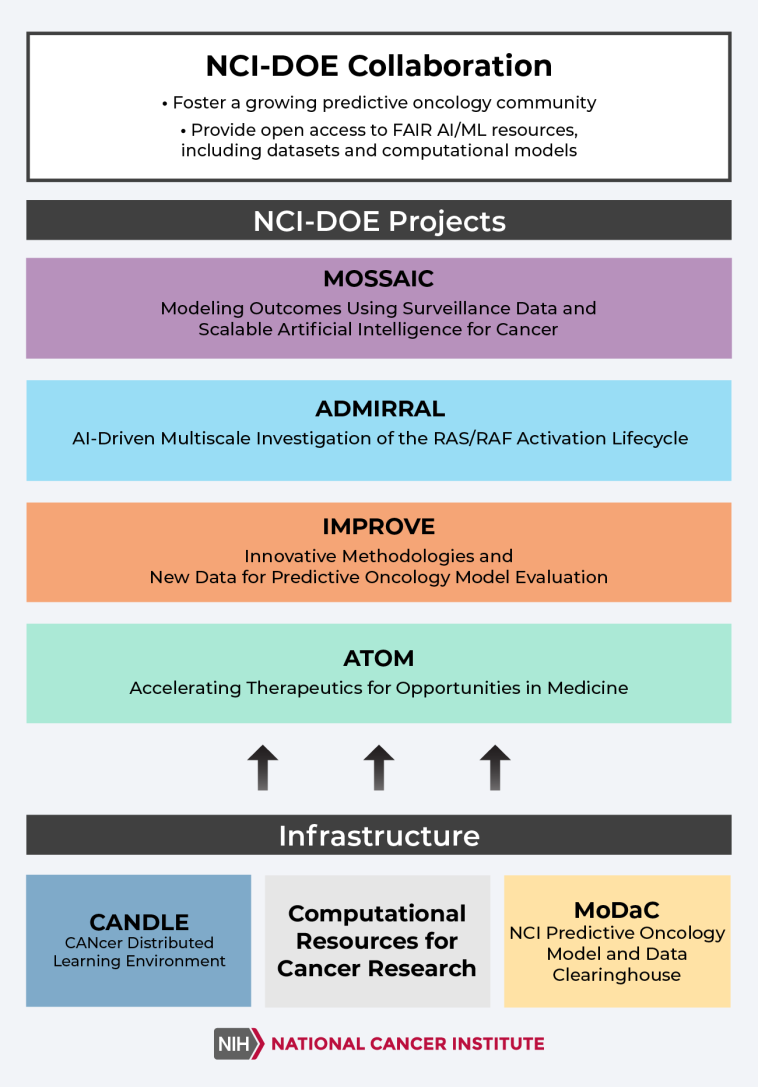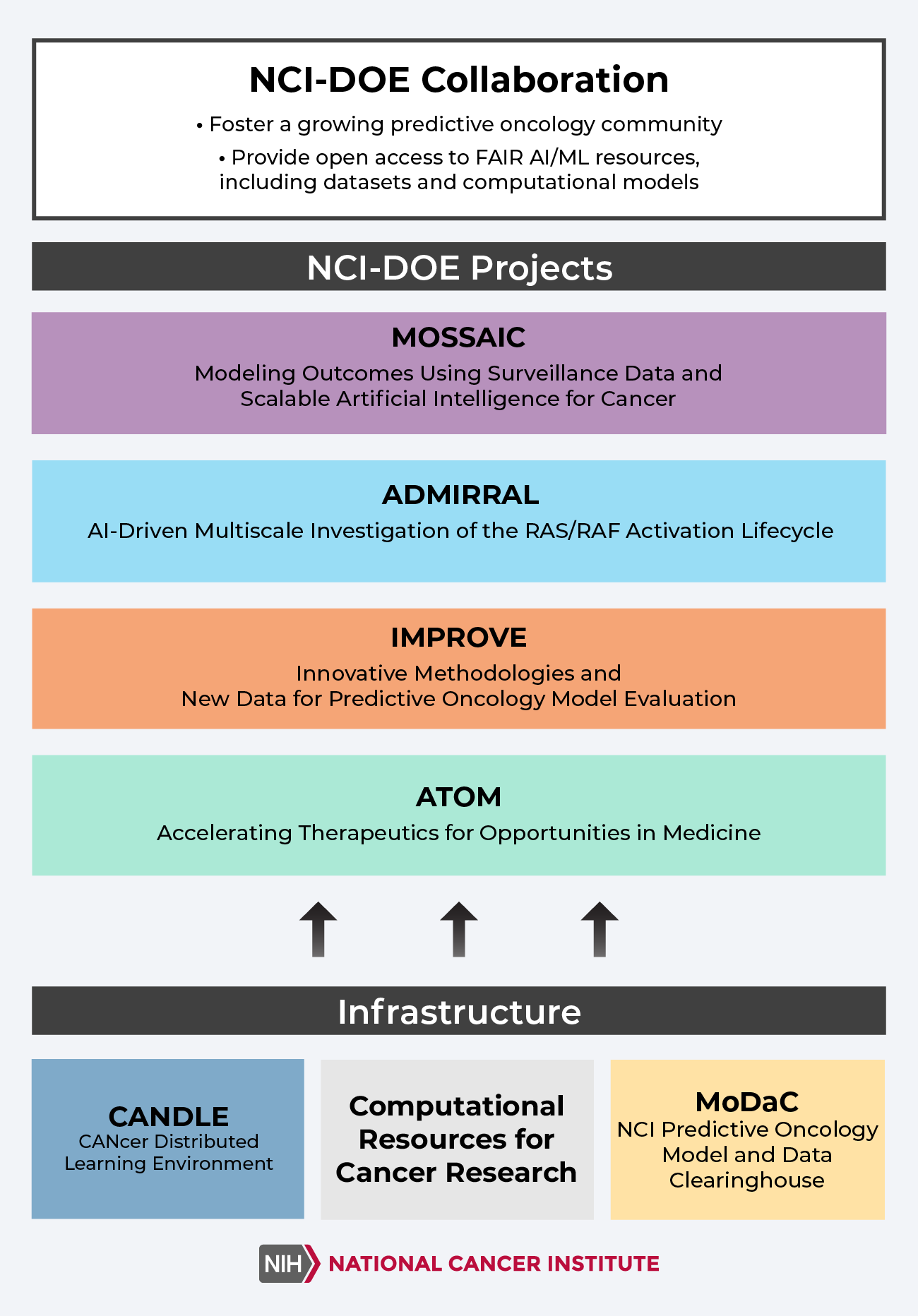Transforming Cancer Research Through Strategic NCI Center Partnerships


Rethinking Healthcare: Bridging Modern Medicine and Alternative Approaches
In today’s rapidly evolving healthcare landscape, we find ourselves at a fascinating crossroads where conventional treatments and alternative methods often coalesce to deliver a more well-rounded approach to health. As we take a closer look at both modern medicine and complementary therapies, it becomes clear that the combination of these practices is not only reshaping the way we manage our health but also addressing the tricky parts and tangled issues that have long plagued our traditional models.
The world of health is filled with subtle twists and turns, where the traditional, evidence-based approaches meet innovative alternatives that emphasize holistic wellbeing. In this opinion editorial, we will dive into the key factors that are shaping healthcare today, discuss nutrition’s critical role in overall wellness, and explore the significance of maintaining fitness. We will also consider the challenges that come with managing chronic disease conditions and share thoughts on finding your path through the confusing bits of healthcare decisions.
Modern Medicine: Innovations and Breakthroughs in the 21st Century
Modern medicine has come a long way, evolving from rudimentary practices to state-of-the-art treatments that save millions of lives every year. The rapid advances in technology, pharmaceuticals, and surgical techniques have paved the way for treatments that were once considered impossible. Today, medical professionals use cutting-edge diagnostic tools and innovative procedures that allow them to pinpoint problems with a precision that was unimaginable just a few decades ago.
Emerging Technologies and Revolutionary Treatments
Technologies such as genetic sequencing, robotic surgery, and telemedicine represent just a fraction of the breakthroughs that are transforming patient care. These advancements are more than just scientific marvels; they are essential tools that provide patients with more accurate diagnoses and tailored treatments that suit their unique conditions. Here are some of the most significant innovations in modern medicine:
- Genetic Sequencing: Offers detailed insights into an individual’s predisposition to certain conditions, enabling preventive care strategies.
- Robotic Surgery: Provides a higher level of precision during operations, reducing recovery times and minimizing complications.
- Telemedicine: Breaks down geographical boundaries, offering patients remote consultations and expanding access to quality care.
- Artificial Intelligence: Uses complex algorithms to analyze patient data, allowing for early detection of conditions and more effective treatment plans.
The introduction of these technologies, while impressive, has not come without its own set of intimidating challenges. For instance, the integration of new systems into existing healthcare frameworks requires careful handling to ensure that the patient’s experience remains seamless. These adaptations often involve figuring out how to get around technical glitches and making sure that all stakeholders—from doctors to patients—are properly educated and ready to embrace these changes.
Challenges in Integrating Advanced Treatments
Despite the promise of modern innovations, the transition to high-tech medicine is not without its nerve-racking hurdles. Healthcare professionals must find ways to manage the implementation and further development of these technologies while ensuring that patient care remains personalized. Some challenges include:
- Training medical staff in new protocols and technologies.
- Managing the costs associated with high-tech equipment and research.
- Addressing the subtle details of integrating traditional care with evolving scientific methods.
- Ensuring patient data privacy and security in an increasingly digital environment.
While these challenges may seem overwhelming at times, they underscore the importance of a balanced approach. Healthcare systems must work through these tangled issues, gradually refining the process so that both doctors and patients experience the full benefits of modern medicine.
Integrative Approaches: Merging Conventional and Alternative Therapies
The growing interest in alternative medicine is not a rejection of conventional treatment but rather an acknowledgment that health can be nurtured in multiple ways. Complementary approaches—ranging from herbal remedies to mindfulness practices—offer patients the opportunity to take a more proactive role in their own well-being. These alternative methods often address the subtle parts and little details of health that standard treatments may overlook.
Herbal Remedies and Natural Supplements
Herbal supplements, acupuncture, and other natural treatments have seen a resurgence as patients seek therapies that align with their naturalistic philosophies. Many of these methods focus on strengthening the body’s inherent abilities to heal and maintain balance, offering additional support alongside conventional treatments.
Examples of alternative therapies include:
- Acupuncture: Traditionally used to relieve pain and improve energy flow, acupuncture is now being integrated into mainstream treatments for conditions such as chronic headaches and arthritis.
- Herbal Supplements: Many individuals turn to natural supplements like turmeric, ginger, and echinacea, which are believed to have anti-inflammatory and immune-boosting properties.
- Mindfulness and Meditation: These practices reduce stress and enhance mental clarity, offering support for both physical and mental health issues.
While some remain skeptical about the efficacy of alternative therapies, growing research and patient testimonials have shed light on their potential benefits. Medical practitioners are increasingly taking a closer look at these treatments and, in some cases, incorporating them into the patient care plan. The real challenge lies in determining which alternative methods are effective and how best to merge them with conventional approaches so that they complement each other.
Case Studies on Integrative Medicine Success
Real-world success stories can help illustrate the benefits of an integrative approach. Consider the following table summarizing case studies where a combination of modern and alternative treatments yielded significant improvements:
| Case Study | Condition | Treatments Applied | Outcome |
|---|---|---|---|
| Patient A | Chronic Pain | Acupuncture and pharmaceutical pain management | Reduced pain and improved mobility |
| Patient B | Inflammatory Disorders | Herbal supplements combined with anti-inflammatory drugs | Marked decrease in inflammation and flare-ups |
| Patient C | Anxiety and Stress | Mindfulness practices alongside antidepressant therapy | Enhanced mental clarity and reduced episodes of anxiety |
These examples illustrate that when healthcare providers step up to manage their way through both modern and alternative treatments, patients can experience comprehensive benefits. However, care must be taken to ensure that all components of the treatment plan are evidence-based and tailored to the individual’s medical history and conditions.
Nutrition and Its Essential Role in Holistic Health
One of the most super important aspects of any healthcare regime is nutrition. While medical interventions can address symptoms and diseases, a balanced diet serves as a foundation for overall health. Nutritional choices influence everything from energy levels to the strength of the immune system, making it a key piece of the health puzzle.
Understanding the Impact of Nutrients on Our Bodies
Nutrition is not just about eating the right foods; it’s about understanding how those foods interact with our body systems. The interplay between vitamins, minerals, proteins, and fats forms the foundation of good health. Let’s take a closer look at some of the most critical nutrients and their benefits:
- Proteins: Essential for muscle repair, enzyme production, and the maintenance of overall cell health.
- Carbohydrates: The primary source of energy that powers our daily activities and cognitive functions.
- Fats: Necessary for brain function and the absorption of fat-soluble vitamins, while also serving as a long-term energy reservoir.
- Vitamins and Minerals: Vital for boosting immune function, facilitating cellular repair, and reducing inflammation.
To better illustrate how these nutrients play out in daily diet planning, consider the following table that outlines the benefits of select vitamins and minerals:
| Nutrient | Source | Key Benefit |
|---|---|---|
| Vitamin C | Citrus fruits, bell peppers | Boosts immune function and aids in collagen production |
| Vitamin D | Sunlight, fortified dairy products | Enhances bone health and improves mood |
| Omega-3 Fatty Acids | Fish, flaxseed | Reduces inflammation and supports heart health |
| Magnesium | Leafy greens, nuts, whole grains | Supports muscle and nerve function |
The above details highlight that diet is more than just food—it is an active and super important part of how we maintain and enhance our health. By weaving good nutrition into your overall wellness plan, you can tackle some of the hidden issues that lead to chronic disease, fatigue, and a range of other health problems.
Simple Strategies to Improve Nutritional Intake
Improving nutrition may seem overwhelming given the many conflicting recommendations available, but there are straightforward strategies that anyone can adopt:
- Planning Balanced Meals: Aim for a mix of lean proteins, a variety of colorful vegetables, whole grains, and healthy fats.
- Reading Labels: Get into the habit of reading food labels to steer through the maze of additives and hidden sugars.
- Cooking at Home: Preparing meals at home not only allows for better portion control but also gives you the freedom to experiment with a variety of nutritious ingredients.
- Staying Hydrated: Keep water as your main beverage throughout the day to support overall bodily functions and digestion.
While making these changes might seem a bit intimidating at first, remember that incremental steps can lead to meaningful improvements in your overall health. By tackling the little details of your diet, you’ll be taking a super important step toward balancing your health and wellbeing.
Chronic Disease Management: Addressing the Tricky Parts of Long-Term Health
The reality of chronic diseases such as diabetes, heart disease, and arthritis introduces a unique set of challenges in managing long-term health. These conditions come loaded with issues—many of which require continuous monitoring and adjustments—that can feel overwhelming to both patients and caregivers alike.
Understanding the Complexities of Chronic Conditions
Living with a chronic disease means facing an array of nerve-racking and tangled issues daily. The routine often includes medication management, regular check-ups, and lifestyle adjustments. It’s not simply about treating symptoms when they arise; rather, it’s about creating a sustainable strategy for living a balanced life despite ongoing health challenges. Here are pivotal aspects to consider when dealing with chronic conditions:
- Medication Management: Keeping track of various medications, understanding their side effects, and ensuring they work in harmony can be a full-time task.
- Lifestyle Adjustments: Changes to diet, exercise routines, and even sleep patterns can have a significant impact on managing chronic disease.
- Mental Health: Ongoing conditions can lead to stress and anxiety, making mental health support an essential component of overall care.
- Regular Monitoring: Routine diagnostic tests help catch the early signs of complications, ensuring timely interventions.
For those working through chronic disease management, it’s crucial to keep the lines of communication open with healthcare providers. This collaborative effort helps in striking the right balance between treatment and lifestyle, enabling patients to get into a rhythm that supports both their physical and emotional health.
Effective Strategies for Managing Chronic Diseases
Based on both modern research and widely accepted alternative practices, several strategies have proven helpful when managing long-term illnesses:
- Holistic Treatment Plans: Combining conventional medication with alternative therapies such as yoga and meditation can ease some of the nerve-racking symptoms.
- Consistent Routine: Establishing a regular schedule for meals, medications, exercise, and sleep helps smooth out the hidden complexities associated with chronic disease.
- Patient Empowerment: Educating oneself about the disease and its management fosters confidence in making informed decisions.
- Support Networks: Joining community groups or support forums provides an outlet for sharing experiences and tips on managing daily challenges.
A multi-faceted approach that includes these strategies can help illuminate the path forward for those navigating the twists and turns of chronic disease. Though the journey is certainly full of obstacles, emphasizing a balance between therapy and lifestyle adjustments can lead to a more manageable and fulfilling life.
Fitness: A Super Important Pillar of Wellbeing
No discussion of health is complete without addressing fitness. Not only does regular exercise complement the efforts of both modern and alternative treatments, but it also plays a crucial role in preventing health issues before they develop. The benefits of staying active are vast, ranging from improved cardiovascular health to enhanced mental clarity.
Physical Activity: More Than Just Exercise
Regular physical activity doesn’t have to be confined to the gym. In fact, everyday movements—such as walking, gardening, or even engaging in light stretching routines—can accumulate into significant health benefits over time. The key is to find ways to integrate movement naturally into your daily schedule. Consider these points to better figure a path toward a more active lifestyle:
- Consistency Over Intensity: Regular, moderate activity is often more sustainable and beneficial over the long haul than sporadic, high-intensity workouts.
- Enjoyable Forms of Exercise: Whether it’s dancing, cycling, or swimming, finding activities you love makes it easier to commit in the long run.
- Community Involvement: Joining local sports clubs or group fitness sessions can provide both accountability and social support.
- Tracking Progress: Using wearable tech or a simple journal can help monitor your progress and celebrate small victories along the way.
It’s important to bear in mind that fitness is not solely about losing weight or building muscle; it’s an essential component of overall wellbeing. Exercise boosts the immune system, improves sleep quality, and even enhances mood by releasing natural endorphins. For many, the journey to physical fitness is filled with small, incremental steps that build up over time, transforming once intimidating routines into manageable parts of everyday life.
Addressing Common Barriers to Exercise
Despite the well-known benefits of regular exercise, many people find themselves stalled by various obstacles. Some of the most common challenges include:
- Lack of Time: Busy work schedules and family responsibilities can often crowd out the time needed for regular exercise.
- Motivational Hurdles: Finding the drive to start and maintain a fitness regimen can be a nerve-racking process at first.
- Physical Limitations: Age, chronic pain, or past injuries may require modified approaches to exercise, complicating the path forward.
- Intimidation in Gym Settings: The modern gym atmosphere, filled with advanced equipment and seemingly fit individuals, can feel overwhelming to newcomers.
Addressing these barriers requires both creativity and a commitment to one’s own wellness. For example, setting achievable fitness goals and gradually building up activity levels can help in managing your way through the often nerve-racking initial stages. Community-based activities, such as group walks or local sports events, also provide a supportive environment that makes it easier to get started and stay active.
Integrating Mental Health into the Broader Health Picture
In recent years, mental health has finally received the attention it deserves as a super important pillar of overall wellbeing. When we discuss healthcare, it is crucial to recognize that psychological and emotional factors play a significant role in physical health. Anxiety, depression, and chronic stress are often closely linked with physical ailments, complicating the full picture of wellness.
Mental Health and Physical Health: A Symbiotic Relationship
From a holistic standpoint, mental and physical health are inseparable. Managing stress through mindfulness techniques, therapy, and even alternative practices like meditation can have a positive cascading effect on physical conditions. For instance, calmer mental states can lead to improved sleep, which in turn strengthens the immune system and reduces the risk of disease flare-ups. Here are some key points on the benefits of integrating mental health initiatives:
- Stress Reduction: Directly impacts blood pressure, heart health, and overall energy levels.
- Improved Coping Strategies: Helps in managing chronic conditions by reducing anxiety and depression.
- Enhanced Quality of Life: Supports faster recovery from illness and better overall health outcomes.
Healthcare practitioners are increasingly emphasizing the need for a comprehensive approach that bridges mental and physical health. This requires creating environments where patients feel comfortable discussing not only their physical symptoms but also the subtle details of their mental wellbeing. By taking a closer look at the linkage between these aspects, healthcare providers can design treatment plans that are both effective and compassionate.
Practical Steps for Better Mental Health
For those who often find themselves overwhelmed by the demands of daily life, here are some straightforward strategies to incorporate better mental health practices:
- Regular Mindfulness Practice: Engaging in mindfulness or meditation for a few minutes each day can help ease the mind, even on the busiest days.
- Seeking Professional Support: Knowing when to reach out to a therapist or counselor is crucial. Professional support can provide guidance through particularly tough times.
- Physical Activity: Exercise is not only beneficial for the body but is also a proven stress reliever that boosts mental clarity.
- Balanced Nutrition: As we’ve already explored, a nutritionally rich diet plays a significant role in brain health and emotional stability.
Incorporating these practices into daily life can help mitigate some of the off-putting effects of chronic stress and anxiety. With a thoughtful approach to both mental and physical health, patients are better equipped to tackle the daily challenges that life may bring.
The Future of Healthcare: Integrating Innovations for Holistic Wellbeing
Looking ahead, the medicine of tomorrow is likely to be even more integrative. We are witnessing a revolutionary moment where traditional practices, advanced technology, alternative therapies, and refined nutritional sciences are all converging to create a healthcare system that is braver and more whole. As healthcare providers work through the tangled issues of data privacy, the effective integration of new technologies, and patient education, the ultimate goal remains clear: to enhance quality of life while reducing the frustrations associated with both managing and preventing illnesses.
Embracing Telemedicine and Digital Health Tools
Telemedicine and digital health platforms have become super important in expanding access to care, especially in rural or underserved areas. These innovations allow patients to consult with healthcare professionals without the hassle of long-distance travel, thereby making it easier to get around traditional barriers. Digital tools also facilitate routine monitoring and provide real-time data that can be used to adjust treatment plans promptly. This enhanced connectivity between patients and providers is a significant shift toward more patient-centered care.
- Remote Monitoring Devices: Empower patients to track their vital signs at home, enabling earlier interventions when necessary.
- Mobile Health Apps: Provide personalized medication reminders, health tips, and even direct chat features with doctors.
- Electronic Health Records: Ensure that patient data flows seamlessly between specialists, reducing the necessity for repeated diagnostics.
These advancements, while on edge with current data management complexities, represent significant improvements in how we figure a path toward effective healthcare delivery.
Personalized Medicine: Tailoring Treatments to the Individual
Personalized medicine is another trend that is shaping the future of healthcare. By using genetic information, lifestyle data, and even environmental factors, doctors can provide treatments that are tailored to each patient’s unique profile. This approach reduces the risk of trial-and-error treatments and minimizes the nerve-racking side effects that sometimes accompany broad-spectrum medications. The precision of personalized treatments underscores how future healthcare will likely combine the best of modern medicine with insights gained from alternative practices.
Conclusion: Charting a Path Toward Comprehensive Health
The interplay between modern medicine, alternative therapies, proper nutrition, chronic disease management, fitness, and mental health forms a rich tapestry that is redefining what it means to be truly healthy. The journey through today’s healthcare landscape is layered with confusing bits and subtle details; yet, with thoughtful innovation and a willingness to address the fine points of each aspect, we stand at the brink of something special—a system that is adaptable, patient-centric, and inherently supportive of a holistic way of living.
While the road ahead contains its fair share of intimidating challenges and nerve-racking decisions, the promise of a future where all facets of health are integrated is inspiring. Healthcare providers, patients, and policymakers alike must work together to steer through the tangled issues and minor hurdles, ensuring that innovations benefit everyone. By embracing both the new technologies of modern medicine and the time-honored practices of alternative therapies, we can look forward to a more balanced, informed, and ultimately healthier society.
In my view, the real triumph of modern healthcare will come not just from groundbreaking scientific advancements or innovative treatments alone, but from our collective ability to get into and address every subtle part that makes up our overall health. Whether it’s through the careful management of chronic conditions, making informed nutritional choices, or simply fostering a culture of active living, each step taken is super important for a better tomorrow.
Looking ahead, it is essential that we continue to foster open dialogue, collaborate across disciplines, and remain curious about emerging therapies. With a combined effort, we can break down the intimidating barriers often associated with managing health and unveil a future where care is as multifaceted as the human body itself. This holistic approach is not an either/or decision—it is a comprehensive strategy that values the cumulative benefits of every treatment modality. Ultimately, the goal is to empower every individual to find their way through the maze of options and live their best, healthiest lives.
Originally Post From https://www.oncologynewscentral.com/oncology/nci-designated-cancer-center-partnerships-in-focus
Read more about this topic at
Plagiarism Quiz Answers – Current students
ChatGPT sometimes not finish its code or sentence, how …

